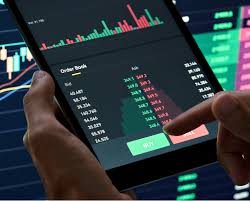
Trading Crypto Platforms: A Comprehensive Guide for Investors
In recent years, the rise of cryptocurrencies has revolutionized the way we think about money and investment. As digital currencies gain traction globally, numerous trading platforms have emerged to facilitate this new form of financial interaction. In this article, we will explore the essential features of trading crypto platforms, their benefits, risks, and offer suggestions on how to choose the best one for your needs. Trading Crypto Platforms click here to watch a video for deeper insights.
What are Trading Crypto Platforms?
Trading crypto platforms are online services that allow users to buy, sell, and trade cryptocurrencies. These platforms vary in terms of features, fees, security measures, and user experience. Some of the most popular trading platforms include Binance, Coinbase, Kraken, and Bitfinex, among others. Understanding the unique offerings of each platform is crucial for traders, whether they are newcomers or seasoned investors.
Key Features of Trading Crypto Platforms
When choosing a trading crypto platform, several key features should be evaluated:
- User Interface: A user-friendly interface is critical, especially for beginners. The platform should allow easy navigation and provide users with necessary tools for trading.
- Fees and Commissions: Different platforms have varying fee structures, including trading fees, withdrawal fees, and deposit fees. It’s essential to understand these costs to improve overall profitability.
- Security: Given the rise in cyber threats, robust security features such as two-factor authentication, cold storage, and encryption are paramount for protecting assets.
- Available Cryptocurrencies: Not all platforms support the same cryptocurrencies. Depending on your trading strategy, it’s crucial to choose a platform that offers a variety of coins.
- Customer Support: Responsive customer support can be invaluable, especially during times of volatility or when technical issues arise.

Types of Trading Crypto Platforms
There are generally three types of trading platforms:
- Centralized Exchanges (CEX): These are managed by companies that act as intermediaries in transactions. Examples include Binance and Coinbase. They are usually user-friendly and offer high liquidity.
- Decentralized Exchanges (DEX): DEXs allow users to trade directly with one another without an intermediary, using smart contracts on the blockchain. Uniswap and PancakeSwap are popular examples.
- Peer-to-Peer Platforms (P2P): P2P platforms connect buyers and sellers directly, allowing them to set their prices. LocalBitcoins is a well-known example in this category.
Benefits of Using Trading Crypto Platforms
Trading crypto platforms provide several significant advantages:
- Accessibility: Most platforms allow anyone with an internet connection to trade, providing opportunities for a diverse range of investors.
- Diverse Investment Opportunities: Investors can explore a wide range of cryptocurrencies and trading pairs.
- Advanced Trading Options: Many platforms offer features such as margin trading, futures contracts, and stop-loss orders, providing users with greater control over their trading strategy.
- Educational Resources: Many platforms provide tutorials, market analysis, and other educational resources to help users make informed trading decisions.
Understanding the Risks

Despite their many benefits, trading crypto platforms also come with inherent risks:
- Market Volatility: Cryptocurrencies can experience significant price fluctuations, which can lead to substantial financial losses.
- Security Risks: Even with robust security measures, trading platforms are vulnerable to hacks, which can result in the loss of funds.
- Regulatory Uncertainty: The legal landscape surrounding cryptocurrencies is continually evolving, and regulatory actions can impact the functionality of trading platforms.
How to Choose the Right Trading Crypto Platform
Selecting the right trading crypto platform involves careful consideration of several factors:
- Assess your trading goals and experience level to find a platform that meets your needs.
- Compare the fee structures of different platforms to ensure they align with your trading strategy.
- Research the security measures each platform has in place to protect users’ assets.
- Look for platforms that offer valuable educational resources if you are a beginner.
- Read user reviews and testimonials to gauge the reputation and reliability of the platform.
Conclusion
Trading crypto platforms play a crucial role in the digital economy, providing opportunities for investors to engage with cryptocurrencies. As the market continues to grow and evolve, it’s vital for traders to stay informed and choose platforms that not only align with their trading strategies but also prioritize security and user experience. By understanding the key features, advantages, and risks associated with these platforms, investors can make educated decisions in this burgeoning financial landscape.
Whether you are just starting or are an experienced trader, the right trading crypto platform can significantly influence your success in the world of cryptocurrencies. Always conduct thorough research and stay updated on market trends to navigate this exciting environment effectively.
